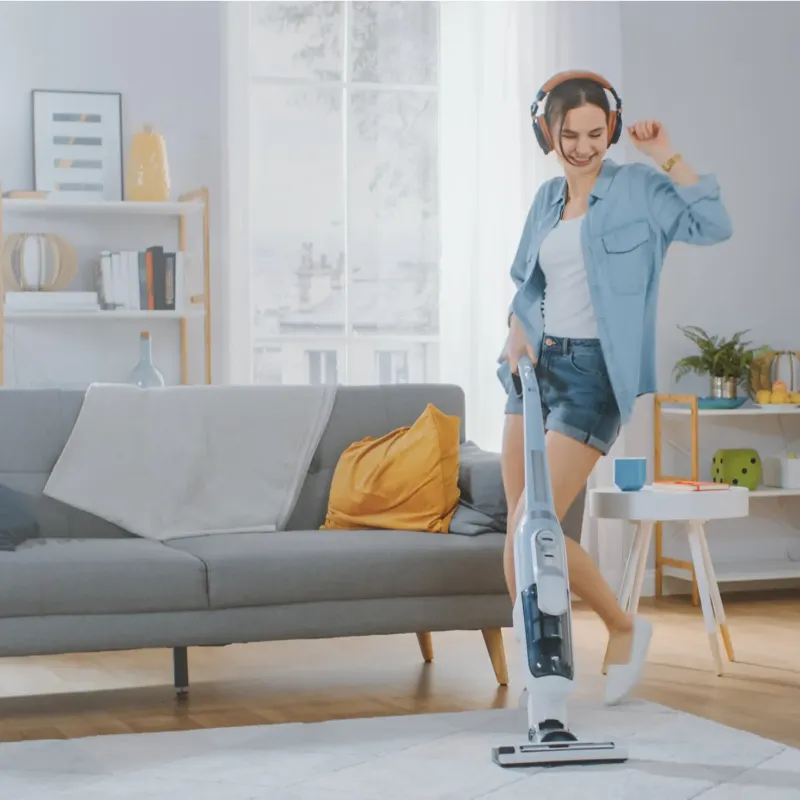Looking for a Vacuum Cleaner Wattage that will clean your house in no time? We have the perfect vacuum cleaner for you – one with enough wattage to quickly and easily clean your floors.
You won’t have to spend hours vacuuming your house – our powerful vacuum cleaner will do it in a fraction of the time. Come to our store and check out our selection of high-powered vacuum cleaners today.
Table of Contents
Vacuum Cleaner Overview
What Is Vacuum Cleaner?

A vacuum cleaner is a household appliance used to clean floors, carpets, furniture and other surfaces by sucking up dust and dirt. It is usually powered by an electric motor. Vacuum cleaners come in a variety of sizes and shapes, with the most common type being the upright vacuum.
A vacuum cleaner is a household appliance that uses an air pump to create a partial vacuum to suck up dust and dirt from floors and carpets. The dirt is then collected by the vacuum cleaner’s dustbin or bag. The dirt is collected in a dustbin or bag. Some vacuum cleaners have a HEPA filter to present small particles from being released into the air.
Vacuum cleaners have been around for many years, and the basic design has remained relatively unchanged. The first vacuum cleaner was invented in 1876 by Hiram Maxim, though it was not until the early 20th century that they became widely used in households.
There are many different types of vacuum cleaners available on the market today, including upright vacuum cleaners, canister vacuum cleaners, stick vacuum cleaners, and handheld vacuum cleaners.
A vacuum cleaner, also known as a Hoover, is a device that uses an air pump to create a partial vacuum to suck up dust and dirt from floors and carpets. The dirt is collected in a dustbin or bag. The dirt is then stored in a bag or container.
Vacuum cleaners are one of the most common household appliances and are used for cleaning floors, carpets and upholstery. Vacuum cleaners can be either hand-held or floor-standing models. Some vacuum cleaners are even designed to clean specific areas such as pools or cars.
History of Vacuum Cleaner
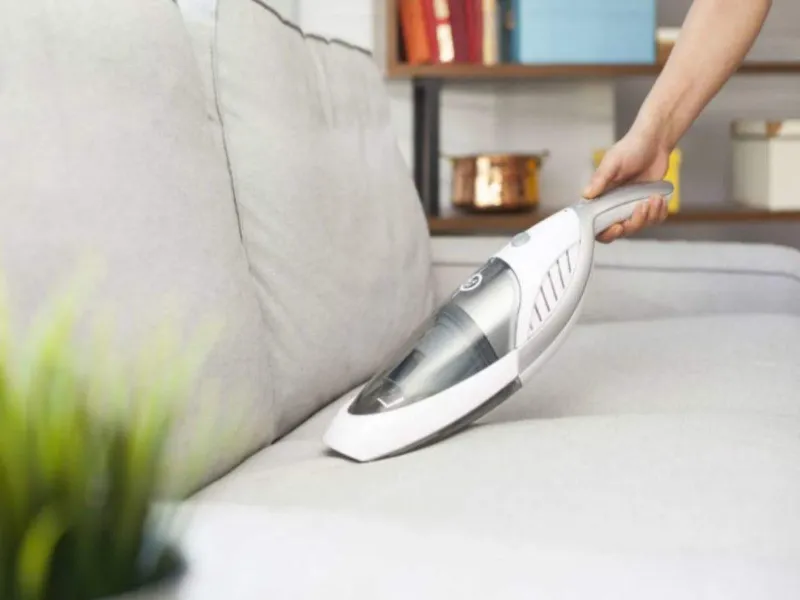
Vacuum Cleaner has a long history from the time it was first conceptualized in the late 17th century to the present day. The first vacuum cleaner was created by a man named Daniel Hess in 1699.
Hess was a watchmaker and he designed a machine that used suction to clean dust from his workbench. This machine had a bellows that operated a small brush, and it was the first recorded instance of suction being used for cleaning.
In 1797, another inventor named William Jenner created a similar machine that was powered by a hand-operated pump. This machine was called the “Whirlwind.” It had a rotating brush that was powered by the pump, and it could be used to clean carpets and upholstery.
In 1869, Ives McGaffey patented the first hand-powered vacuum cleaner. This machine was called the “Suction Sweeper” and it had a rotating brush that was powered by a hand crank. The suction was created by a bellows, and the machine could be used on both carpets and bare floors.
The first electric vacuum cleaner was patented in 1908 by James Spangler. His machine was powered by a motor, and it had a rotating brush that was driven by the motor. The suction was created by an impeller, and the machine could be used on both carpets and bare floors.
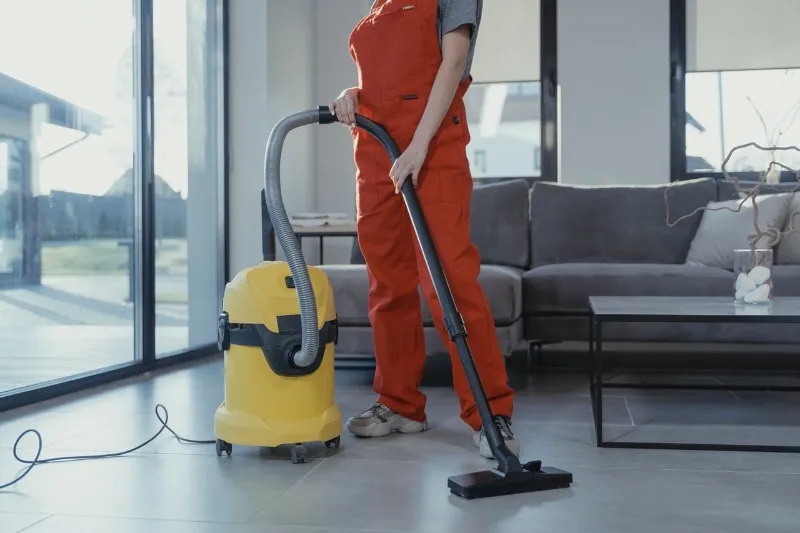
In 1911, the first battery-powered vacuum cleaner was invented by Walter Griffiths. His machine was called the “Puffing Billy” and it had a rotating brush that was powered by a battery. The suction was created by an impeller, and the machine could be used on both carpets and bare floors.
In the 1920s, many different companies started manufacturing vacuum cleaners. Some of the most popular brands were Hoover, Eureka, and Kirby. In the 1990s, cordless and bagless vacuum cleaners were introduced, and today there are many different types and styles of vacuum cleaners available on the market.
Today, there are many different types and styles of vacuum cleaners available on the market. There are upright vacuums, canister vacuums, handheld vacuums, cordless vacuums, and robot vacuums.
There are also vacuums that are designed for specific purposes, such as pet hair removal or allergies. No matter what your needs are, there is a vacuum cleaner out there that will suit your needs.
What Are The Benefits Of Using Vacuum Cleaner?
There are many benefits of using vacuum cleaner, including:
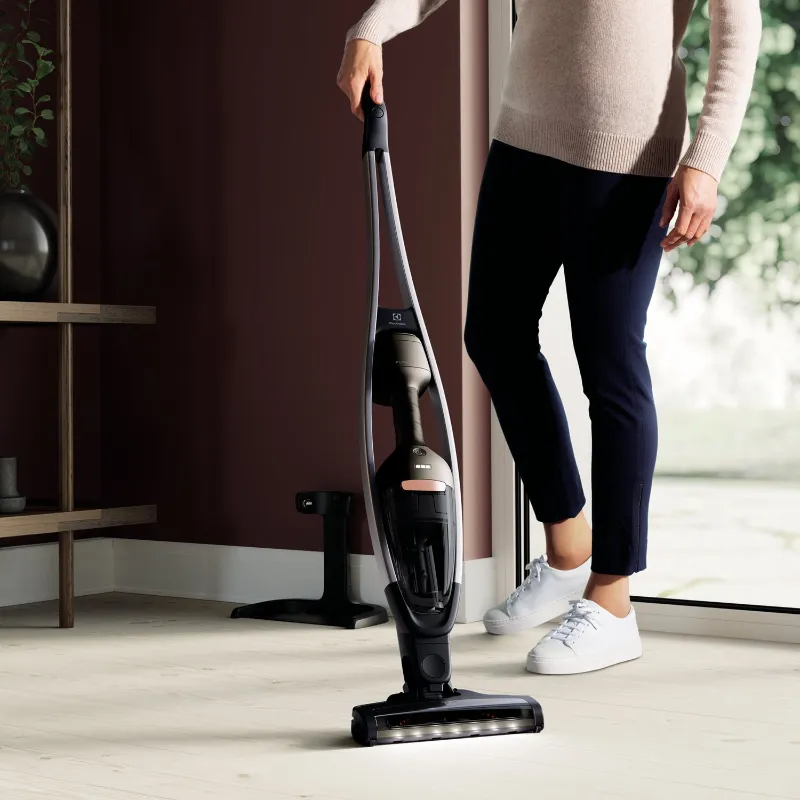
The first benefit of using vacuum cleaner is that it can help you clean your house more thoroughly. When you use a vacuum cleaner, all the dirt and dust will be sucked into the machine and you will not have to worry about them anymore. This means that your house will be much cleaner and there will be less chances for you to get sick.
The second benefit of using vacuum cleaner is that it can help you save time. If you have a lot of carpets or rugs in your house, it will take you a long time to clean them all by hand. However, if you use a vacuum cleaner, you will be able to clean them much faster and this will save you a lot of time.
The third benefit of using vacuum cleaner is that it can help you save money. If you always have to buy new carpets or rugs because they are too dirty, it will cost you a lot of money. However, if you use a vacuum cleaner, you will not have to spend any money on buying new carpets or rugs because the vacuum cleaner will clean them for you.
The fourth benefit of using vacuum cleaner is that it can help you protect your furniture. If you have a lot of furniture in your house, it is very important to keep them clean so that they will last longer.
Another benefit of using vacuum cleaner is that it can help you save time. If you have a lot of furniture in your house, it will take you a long time to clean them all by yourself. However, if you use a vacuum cleaner, you can just turn on the machine and let it do its job. This will save you a lot of time and effort.
Lastly, vacuum cleaner can also help you save money. If you think about it, the cost of buying a vacuum cleaner is much cheaper than the cost of buying all the cleaning products that you need to clean your house.
In addition, you will not have to waste any time in going to the store to buy the cleaning products. All you need to do is to turn on the vacuum cleaner and it will do its job.
What Is Vacuum Cleaner Wattage?

A vacuum cleaner’s wattage refers to the amount of power it uses. The higher the wattage, the more powerful the vacuum cleaner. Most vacuum cleaners use between 500 and 1,200 watts of power.
Because vacuum cleaners use so much power, they can be one of the most expensive appliances to run. To save money on your electric bill, look for a vacuum cleaner with a lower wattage. A lower wattage will still give you plenty of power to clean your home.
The Vacuum Cleaner Wattage is the amount of power that the vacuum cleaner uses. The higher the wattage, the more powerful the vacuum cleaner is. Most vacuum cleaners use between 500 and 1,200 watts of power.
Vacuum cleaners can be one of the most expensive appliances to run because they use so much power. To save money on your electric bill, look for a vacuum cleaner with a lower wattage. A lower wattage will still give you plenty of power to clean your home.
When you are looking for a new vacuum cleaner, be sure to check the wattage. A higher wattage means a more powerful vacuum cleaner. Most vacuums use between 500 and 1,200 watts of power.
Vacuum cleaners use a variety of wattages, depending on the model and size. The average canister or upright vacuum cleaner uses about 1,000 watts, while a handheld model uses around 500 watts. The average vacuum cleaner uses about 700 watts, but some models can use up to 1,200 watts.

The higher the wattage, the more powerful the vacuum cleaner. When choosing a vacuum cleaner, consider the wattage to ensure that you are getting a model that is powerful enough to clean your home effectively.
When it comes to vacuum cleaners, wattage is an important factor to consider. A higher wattage means a more powerful vacuum, which can be helpful if you have a lot of dirt and debris to clean up. With that said, vacuum cleaners with higher wattages also tend to be more expensive.
Vacuum cleaners with higher wattages use more energy and may be more expensive to operate. However, they tend to be more effective at cleaning than lower-wattage models. When choosing a vacuum cleaner, consider the wattage to ensure that you are getting a model that is powerful enough to clean your home.
If you are looking for a powerful vacuum cleaner, look for a model with a high wattage. Models with higher wattages use more energy and may be more expensive to operate, but they are more effective at cleaning.
When choosing a vacuum cleaner, consider the wattage to ensure that you are getting a model that is powerful enough to clean your home effectively. A higher wattage means a more powerful vacuum, which can be helpful if you have a lot of dirt and debris to clean up.
Keep in mind that vacuum cleaners with higher wattages also tend to be more expensive. If you are looking for a powerful vacuum cleaner, look for a model with a high wattage.
How Does Vacuum Cleaner Wattage Affect Its Performance?
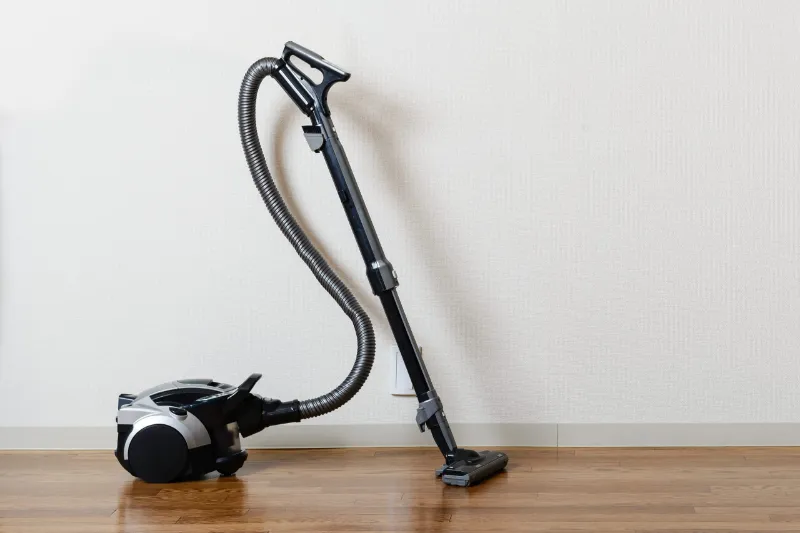
There is no definitive answer to this question as it depends on a number of factors, including the type of vacuum cleaner, the size of the room, and the type of flooring. However, in general, a higher wattage will lead to a more powerful vacuum cleaner that can clean more dirt and debris.
The wattage of a vacuum cleaner can affect its performance in a number of ways. Higher wattage cleaners typically have more suction power and can clean heavier dirt and debris. They may also be able to operate for longer periods of time before needing to be recharged.
Lower wattage cleaners, while typically less expensive, may not be as powerful and may need to be recharged more often. Ultimately, the wattage of a vacuum cleaner is just one factor to consider when choosing the right model for your needs. Other factors such as weight, attachments, and noise level can also play a role in your decision.
Additionally, a higher wattage vacuum may be able to clean carpets better than a lower wattage model. For hardwood floors, a lower wattage may be just as effective as a higher wattage. Ultimately, it is important to consider all of these factors before making a decision on which vacuum cleaner to purchase.
Another thing explain the way Vacuum Cleaner Wattage Affect Its Performance is that, the higher the wattage on your vacuum, the more suction power it will have. This can be a good thing or a bad thing depending on what you are looking for in a vacuum.
If you want a vacuum that will be able to pick up more dirt and debris, then a higher wattage may be better. However, if you have a lot of furniture or delicate items in your home, you may want to opt for a lower wattage so that you do not damage these items.
In the end, it really depends on your individual needs as to what wattage vacuum cleaner is best for you. There are many different models and brands of vacuum cleaners on the market, so take the time to research and find the one that best suits your needs.
How To Choose The Right Vacuum Cleaner Wattage?
There are factors to choose the right vacuum cleaner wattage, including:
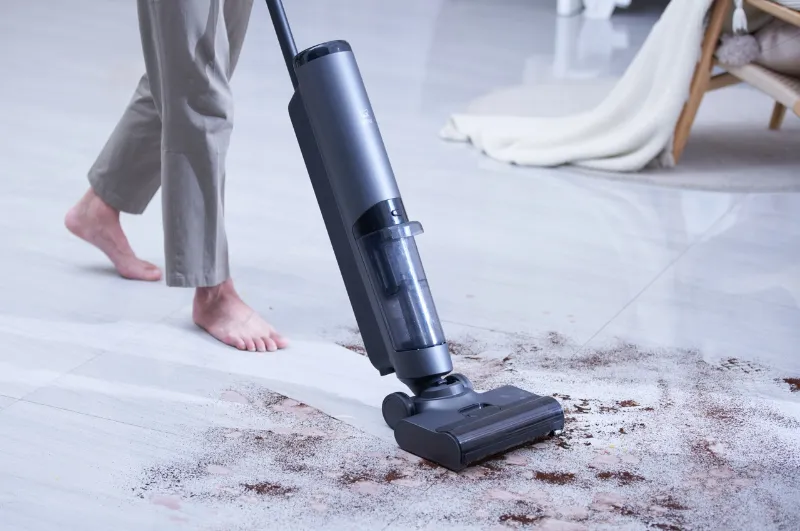
Type of vacuum cleaner
The first factor you should look at when purchasing a vacuum cleaner is the type of vacuum you need. There are many different types of vacuums on the market, each designed for specific cleaning needs.
For example, if you have hardwood floors, you’ll want to purchase a vacuum that’s specifically designed for hardwood floors. The same goes for carpets. There are vacuums designed specifically for carpets, as well as those designed for all floor types.
Size of the vacuum
The second factor to choose the right vacuum cleaner wattage is the size of the vacuum. You’ll want to purchase a vacuum that’s the right size for your home. If you have a small apartment, you won’t need a large, powerful vacuum cleaner.
On the other hand, if you have a large home with multiple floors, you’ll want a vacuum cleaner that’s powerful enough to clean all of the floors in your home.
Type of flooring
The third factor to consider when choosing the right vacuum wattage is the type of flooring you have in your home. If you have hardwood floors, you’ll want a vacuum that’s specifically designed for hardwood floors. The same goes for carpets. There are vacuums designed specifically for carpets, as well as those designed for all floor types.
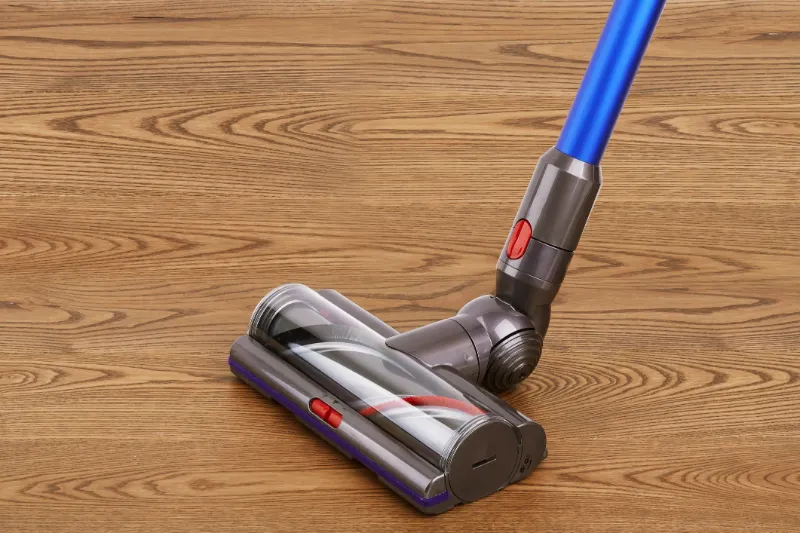
Noise level
The fourth factor to consider when choosing the right vacuum cleaner wattage is the noise level. You’ll want to purchase a vacuum that’s specifically designed for low noise levels. If you have young children in your home, you’ll want a vacuum that won’t disturb them while they’re sleeping. You should also look for a vacuum that has a quiet motor.
Ease of use
The fifth factor to consider when choosing the right vacuum cleaner wattage is the ease of use. You’ll want to purchase a vacuum that’s easy to operate. If you have pets in your home, you’ll want a vacuum that’s specifically designed for pet hair. You should also look for a vacuum that has a dustbin that’s easy to empty.
Power
The sixth factor to consider when choosing the right vacuum cleaner wattage is the power. You’ll want to purchase a vacuum that’s specifically designed for the type of flooring you have in your home.
If you have hardwood floors, you’ll want a vacuum that’s powerful enough to clean them. The same goes for carpets. There are vacuums that are specifically designed for carpets, as well as those designed for all floor types.
Price
The seventh and final factor to consider when choosing the right vacuum cleaner wattage is the price. You’ll want to purchase a vacuum that’s within your budget. There are many different types of vacuums on the market, and the price can vary depending on the features and specifications.
You should also keep in mind that the wattage isn’t the only factor to consider when choosing a vacuum cleaner. You’ll also want to consider the type of vacuum, the size of the vacuum, the type of flooring, the noise level, the ease of use, and the power. All of these factors will help you choose the right vacuum for your needs.
FAQs
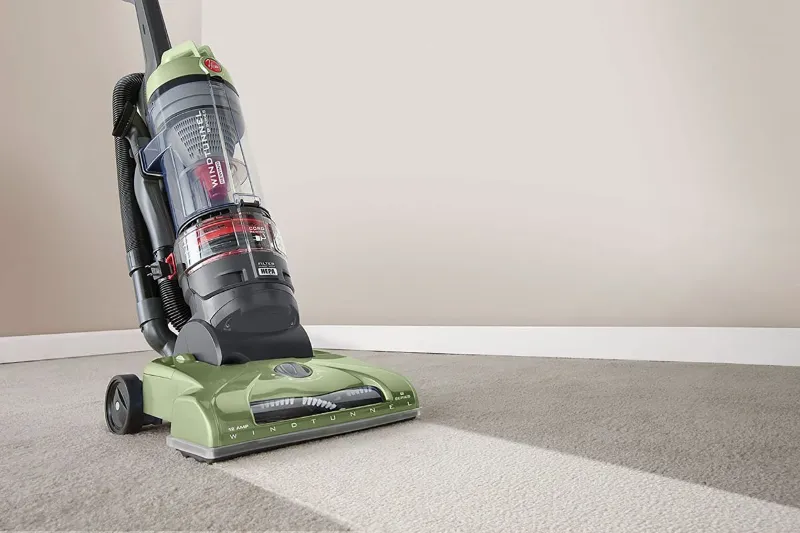
What does wattage mean for vacuum cleaners?
Wattage is a measure of how much power a vacuum cleaner uses. The higher the wattage, the more powerful the vacuum cleaner. Vacuum cleaners with higher wattage use more electricity, but they also tend to be more effective at cleaning.
What is the difference between a high wattage vacuum cleaner and a low wattage vacuum cleaner?
High wattage vacuum cleaners are more powerful and use more electricity than low wattage vacuum cleaners. Low wattage vacuum cleaners are less powerful and use less electricity.
Which is better, a high wattage vacuum cleaner or a low wattage vacuum cleaner?
It depends on your needs. If you have a lot of carpeting or pets, you may need a more powerful vacuum cleaner with higher wattage. If you have less carpeting or fewer pets, you may be able to get by with a less powerful vacuum cleaner with lower wattage.
How much wattage do I need for my vacuum cleaner?
There is no definitive answer to this question as it depends on a number of factors, such as the type of vacuum cleaner you have, the amount of carpeting in your home, and the number of pets you have.
However, as a general rule of thumb, most vacuum cleaners with a wattage of 1000 or more are considered high wattage vacuum cleaners, while most vacuum cleaners with a wattage of 900 or less are considered low wattage vacuum cleaners.
How Does Vacuum Cleaner Work?
The vacuum cleaner works by creating a low-pressure area inside the cleaner. This causes the air to be drawn in through the intake valve. The dirt and dust are then sucked up into the cleaner and held there by the filter until the canister or dustbin is full. When you release the button, the high-pressure area created outside of the cleaner forces the air back through the exhaust valve and out of the vacuum.
The vacuum cleaner works by using an electric motor to turn a fan. The fan creates a powerful vacuum that sucks up dirt and debris from the floor. The dirt and debris are then stored in a bag or canister. It works with the help of a moving brush that loosens the dirt so that it can be easily sucked up by the vacuum.
How Much Power Does a Vacuum Cleaner Use?
The average vacuum cleaner uses about 1,200 watts of power. However, this can vary depending on the type of vacuum cleaner you have. For example, a handheld vacuum cleaner will use less power than a full-sized vacuum cleaner.
Conclusion
Vacuum cleaner wattage is an important consideration. The higher the wattage, the more power the vacuum cleaner will have. This means that it can clean carpets and floors more effectively. If you have a lot of dirt and debris to remove from your floors, then you will want to choose a vacuum cleaner with a high wattage.
However, if you have a smaller home or apartment, then you may not need as much power and you can save money by choosing a vacuum cleaner with a lower wattage. Wattage is just one consideration when choosing a vacuum cleaner. Be sure to also consider the type of floors you have, the size of your home, and your budget when making your decision.

